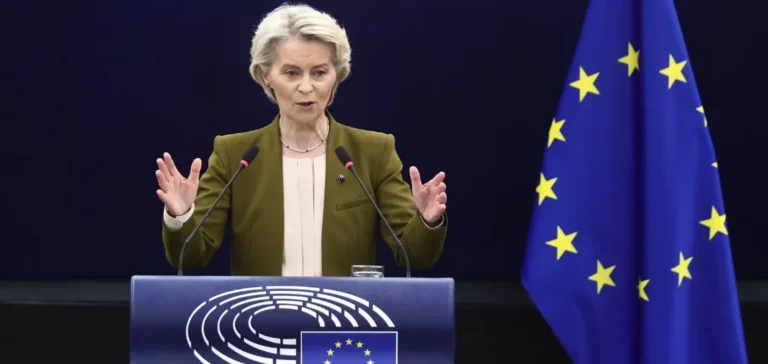The European Parliament’s Committee on International Trade and Committee on Industry, Research and Energy approved a proposal to ban all imports of Russian natural gas and liquefied natural gas (LNG) starting from January 1, 2027. This deadline would move up the phaseout by one year compared to the European Commission’s initial proposal in June, which targeted a complete phaseout by January 1, 2028.
The joint committees also called for a complete halt to Russian crude oil imports from January 1, 2026. The ban would extend to petroleum products refined in third countries using Russian crude, significantly broadening the scope of restrictions. The proposal seeks to tighten existing rules on long-term gas contracts by prohibiting purchases after January 1, 2027, under any agreement signed before June 17, 2025, that remains unamended since then.
Stricter contract limitations
The draft retains the Commission’s proposal to prohibit the signing of new and short-term contracts for Russian gas and LNG from January 1, 2026. Purchases under short-term contracts—defined as those lasting less than one year—would be allowed until June 17, 2026, provided the contracts were signed before June 17, 2025. Long-term contracts, lasting more than one year, would be banned a year earlier than proposed by the Commission, which had set the deadline at January 1, 2028.
Regarding infrastructure, the parliamentary proposal maintains the Commission’s plan to ban the use of European LNG terminals for deliveries to Russian-controlled or owned entities as of January 1, 2026. However, the committees proposed expanding this restriction to include any person or entity under “significant influence” of Russia, thereby tightening control over critical infrastructure operations.
Next institutional steps
The joint committees also voted to initiate interinstitutional negotiations based on their proposal. Unless a formal objection is raised by the wider European Parliament, the draft will proceed to discussions with the Council of the European Union. If sufficient opposition arises, the full Parliament must vote on the proposal before talks with the Council can begin.
These measures are part of a broader effort to reshape the European Union’s energy strategy in response to the conflict in Ukraine. By setting specific dates for a complete energy break with Russia, the Parliament aims to assert a coherent diplomatic position while prompting necessary adjustments in existing infrastructure and contractual frameworks.






















